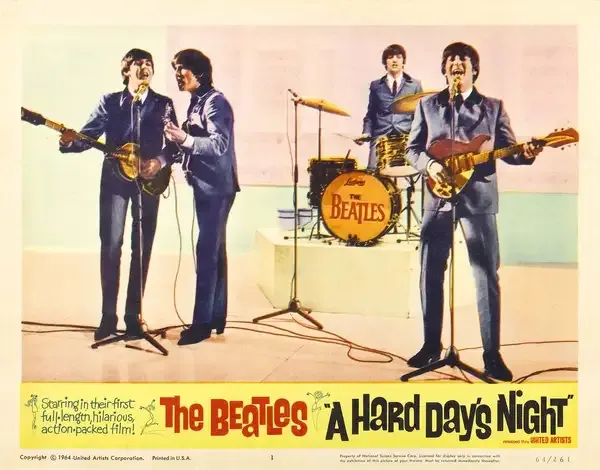The Birth of Beatlemania: Observing a Fifty-Year (1963–2013) Milestone
"The Birth of Beatlemania: Observing a Fifty-Year (1963–2013) Milestone" explores the cultural phenomenon of Beatlemania, highlighting its impact on music and youth culture from its inception in the early 1960s. The exhibition delves into the band's rise to fame, their innovative contributions to popular music, and the fervent fan reactions that characterized the era. Concurrently, "The Big Apple" and the stories behind the nicknames of eight other iconic cities offer insights into how urban identities are shaped and celebrated through unique monikers.

Beatlemania, a term that encapsulates the fervent excitement and hysteria surrounding The Beatles, first emerged in the early 1960s. This cultural phenomenon not only changed the landscape of music but also had a lasting impact on popular culture. As we observe the fifty-year milestone from 1963 to 2013, it is essential to dissect the elements that contributed to the birth of Beatlemania and its enduring legacy.
The Rise of The Beatles
The Beatles, comprised of John Lennon, Paul McCartney, George Harrison, and Ringo Starr, formed in Liverpool in 1960. Their unique blend of rock 'n' roll, pop, and skiffle quickly gained traction. By the time they released their first album, "Please Please Me," in 1963, they had already begun to create a significant buzz. The album's success was a precursor to the unprecedented fame that would follow.
Chart Success and Breakthrough Hits
The Beatles' early singles marked a pivotal moment in their career. Key releases such as "I Want to Hold Your Hand" and "She Loves You" topped the charts, significantly contributing to the phenomenon known as Beatlemania. Below is a table showcasing some of their notable chart-toppers during this period:
| Year | Song Title | Chart Position |
|---|---|---|
| 1963 | I Want to Hold Your Hand | 1 |
| 1963 | She Loves You | 1 |
| 1964 | Can't Buy Me Love | 1 |
| 1964 | A Hard Day's Night | 1 |
| 1964 | I Feel Fine | 1 |
The Media Explosion
The Beatles' rise to fame coincided with the expansion of television and mass media. Their appearance on "The Ed Sullivan Show" in February 1964 marked a watershed moment in the history of television and music. An estimated 73 million viewers tuned in to watch the band perform, solidifying their status as cultural icons. The media frenzy surrounding The Beatles was instrumental in amplifying Beatlemania, as fans were treated to constant coverage of their activities, concerts, and personal lives.
Fan Culture and Beatlemania
Beatlemania was not just about the music; it was a cultural movement characterized by intense fan engagement. Young fans, predominantly teenage girls, expressed their devotion through screaming, crying, and even fainting at concerts. This unparalleled enthusiasm created an entirely new fan culture, leading to the emergence of fan clubs, merchandise, and memorabilia. The Beatles themselves were often taken aback by the sheer intensity of their fan base, which set the stage for future artists.
The Impact of Beatlemania on Music
Beatlemania revolutionized the music industry, paving the way for future bands and solo artists. Their innovative approach to songwriting, recording techniques, and album production inspired a generation of musicians. The Beatles' willingness to experiment with different musical styles also influenced the broader music landscape, leading to the birth of various genres and subgenres. Key elements of this influence included:
- Integration of diverse musical styles.
- Emphasis on album-oriented rock.
- Focus on lyrical depth and storytelling.
Legacy and Continued Influence
As we examine the fifty years since the birth of Beatlemania, it becomes evident that The Beatles' impact extends far beyond their initial success. Their music continues to resonate with new generations, and their albums remain timeless classics. The enduring popularity of songs such as "Yesterday," "Let It Be," and "Hey Jude" exemplifies their lasting legacy in the music world.
Moreover, the cultural and social dynamics of Beatlemania have influenced countless artists, shaping the way music is marketed and consumed. The Beatles set a precedent for leveraging media to build a brand, a strategy still relevant in today's music industry.
Conclusion
The birth of Beatlemania in 1963 marked the beginning of a cultural phenomenon that transformed the music landscape and popular culture. As we reflect on this fifty-year milestone, it is clear that The Beatles' influence is as powerful today as it was during their heyday. Their innovative spirit, coupled with an understanding of fan engagement, has left an indelible mark on the music industry that continues to inspire artists and entertain fans worldwide.
In conclusion, Beatlemania is not just a historical event; it is a testament to the power of music to unite, inspire, and create lasting cultural shifts. The legacy of The Beatles serves as a reminder of the magic of music and its ability to transcend time and space.












